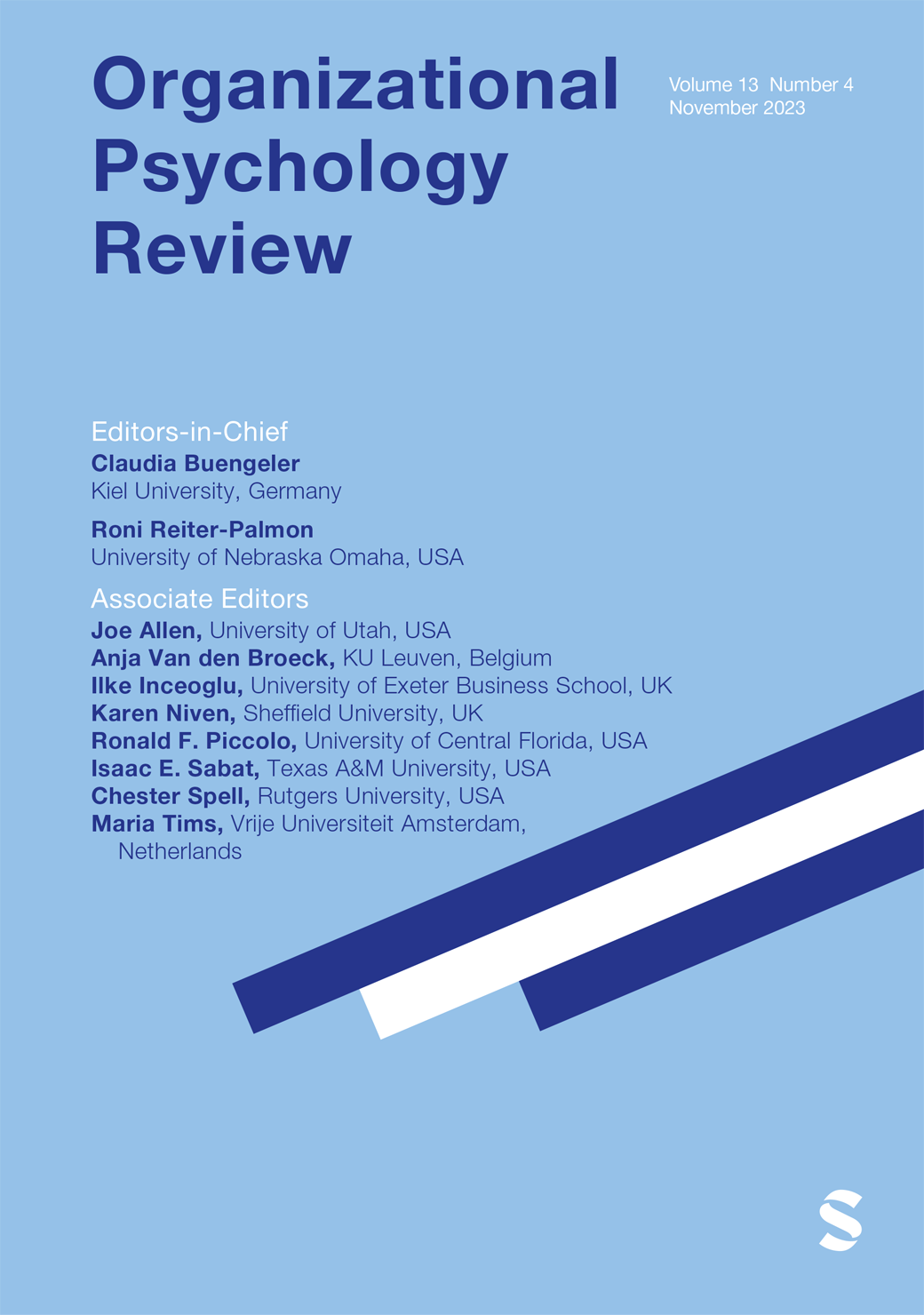The meeting after the meeting: A conceptualization and process model
IF 7.1
1区 心理学
Q2 MANAGEMENT
引用次数: 1
Abstract
This article offers initial theorizing on an understudied phenomenon in the workplace: the meeting after the meeting (MATM). As an informal and unscheduled event, the MATM takes place outside managerial control and has potentially far-reaching consequences. However, our current knowledge of the MATM relies primarily on practitioner observations, and conceptual work that integrates the MATM into the larger meeting science literature is missing. This article fills this gap by outlining key defining features of the MATM that can be used to structure future research. Moreover, and based on theorizing concerning the affect-generating nature of meetings, we develop an affect-based process model that focuses on the antecedents and boundary conditions of the MATM at the episodic level and shines light on meetings as a sequential phenomenon. Plain Language Summary This article sheds light on an understudied but rather common phenomenon in the workplace: The meeting after the meeting (MATM). Defined as an unscheduled, informal and confidential communication event, the MATM has the potential to create new structures in everyday organizational life. Yet, our current knowledge of this particular meeting type is very limited and largely based on anecdotal accounts by practitioners. To guide future research, this article first outlines key features of the MATM, focusing on when the MATM occurs, where it takes place, how it takes place, why it takes place, and who is involved in the MATM. Next, this article presents an affect-based process model of the MATM. To this end, antecedents and boundary conditions at the episodic level are outlined, highlighting that meetings should be seen as interconnected, sequential events.会后会议:概念化和过程模型
这篇文章对工作场所中一种研究不足的现象提供了初步的理论:会后会议(MATM)。MATM作为一种非正式和非计划的事件,发生在管理层控制之外,具有潜在的深远影响。然而,我们目前对MATM的了解主要依赖于从业者的观察,而将MATM整合到更大的会议科学文献中的概念性工作是缺失的。本文通过概述可用于构建未来研究的MATM的关键定义特征来填补这一空白。此外,在对会议的情感生成性质进行理论化的基础上,我们开发了一个基于情感的过程模型,该模型在情节层面上关注MATM的前因和边界条件,并将会议视为一种顺序现象。这篇文章揭示了职场中一个研究不足但相当普遍的现象:会后会议(MATM)。MATM被定义为一种计划外、非正式和保密的沟通活动,它有可能在日常组织生活中创造新的结构。然而,我们目前对这种特定会议类型的了解非常有限,而且主要基于从业者的轶事描述。为了指导未来的研究,本文首先概述了MATM的关键特征,重点介绍了MATM何时发生、在哪里发生、如何发生、为什么发生以及谁参与了MATM。接下来,本文提出了一个基于情感的MATM过程模型。为此,概述了情景层面的前因和边界条件,强调会议应被视为相互关联的、连续的事件。
本文章由计算机程序翻译,如有差异,请以英文原文为准。
求助全文
约1分钟内获得全文
求助全文
来源期刊

Organizational Psychology Review
Multiple-
CiteScore
10.00
自引率
1.60%
发文量
25
期刊介绍:
Organizational Psychology Review is a quarterly, peer-reviewed scholarly journal published by SAGE in partnership with the European Association of Work and Organizational Psychology. Organizational Psychology Review’s unique aim is to publish original conceptual work and meta-analyses in the field of organizational psychology (broadly defined to include applied psychology, industrial psychology, occupational psychology, organizational behavior, personnel psychology, and work psychology).Articles accepted for publication in Organizational Psychology Review will have the potential to have a major impact on research and practice in organizational psychology. They will offer analyses worth citing, worth following up on in primary research, and worth considering as a basis for applied managerial practice. As such, these should be contributions that move beyond straight forward reviews of the existing literature by developing new theory and insights. At the same time, however, they should be well-grounded in the state of the art and the empirical knowledge base, providing a good mix of a firm empirical and theoretical basis and exciting new ideas.
 求助内容:
求助内容: 应助结果提醒方式:
应助结果提醒方式:


